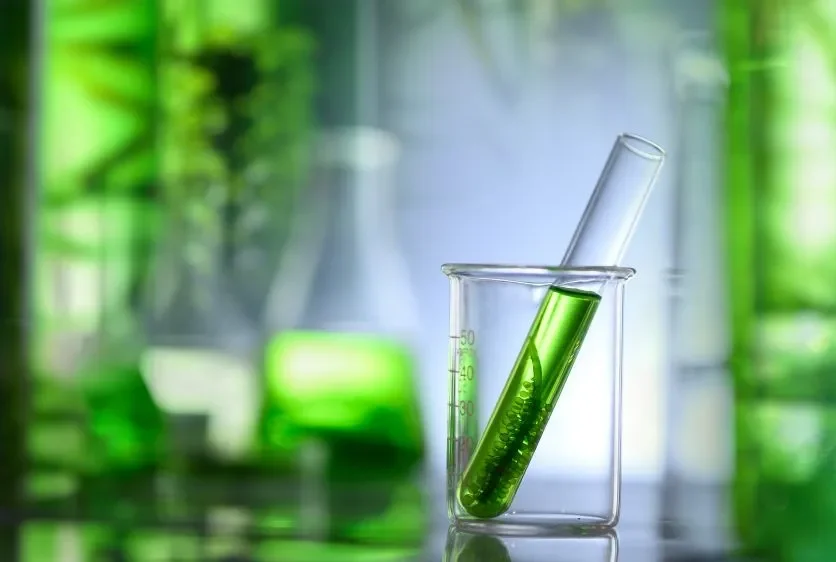Robust changes brought in by the global economic slowdown, the impact of war in Ukraine, and the risk of stagflation require companies to align their plans and scenarios. Further, the mentioned circumstances, along with the Covid-19 pandemic implications, are pressing the need for Pharmaceutical & Biotechnology industry players to be more vigilant and forward-looking.
This sector is also a highly competitive landscape. Organisations must consistently adapt their strategies and align with emerging trends to thrive. Today’s most successful pharmaceutical companies are at the forefront of innovation, embodying a forward-thinking mindset and strategic planning.
Let’s dive deep into success factors, including Marketing Automation, which a company should implement when aspiring to win on the market.
Innovation is a crucial priority for leaders in the pharmaceutical and biotechnology industry. This priority is reflected in significant investments in research and development (R&D), allowing for the continuous development of new drugs and therapies. By placing R&D at the core of business strategies, organisations can maintain a competitive edge despite the extensive time and financial commitment this approach demands.
While Marketing Automation may not directly influence scientific research in developing new drugs or therapies, it supports and enhances R&D activities through efficient data management and analysis. MA platforms can collect and analyse large volumes of data relating to patient needs, behaviours, treatment adherence, and outcomes. These insights can show potential focus areas, indicating patient needs or shedding light on the effectiveness of current treatments.
Additionally, by gathering and analysing feedback from healthcare professionals (HCPs), for example, through automated surveys, Marketing Automation can help to understand physicians’ experiences with existing treatments and their expectations for future therapies. Organisations can also use the tool for post-marketing surveillance, monitoring the safety and efficacy of a drug after it has been released on the market. By automating collecting and analysing patient feedback and outcomes, Marketing Automation can help identify unforeseen side effects or areas for improvement, contributing to the refinement and development of future treatments.
Putting patients at the centre of all initiatives is another trend among industry leaders. Recognising the patient as the primary stakeholder, they deliver personalised and patient-oriented solutions and boost patient satisfaction and loyalty. This results in a stronger market position.
Emphasising patient-centricity in strategic planning and prioritising developing drugs and therapies that meet specific patient needs is critical to achieving sustainable success in the pharmaceutical industry.
Marketing Automation enables personalisation by collecting and analysing various data points about customer groups. This includes demographic data, past interactions, online behaviour and treatment preferences. Detailed customer profiles allow for a tailored approach to each individual and customised messages and content, enhancing customer experience.
-
Marketing Automation is frequently used in the pharmaceutical sector to engage Healthcare Professionals (HCPs) and patients. Detailed tracking of engagement metrics allows for personalised communication, which is essential. By analysing data on behaviour and preferences, companies can tailor their messaging to individual needs and interests, enhancing engagement and building stronger relationships.
Artificial intelligence and machine learning are pushing the boundaries of what is possible. Marketing Automation tools can refine the customer segmentation process, predict consumer behaviour, and craft hyper-personalised messages. Pharmaceutical companies should embrace these technologies and actively invest in their implementation.
The use of advanced analytics is another trend. As the volume and diversity of data grow, pharmaceutical companies will increasingly need sophisticated tools to draw actionable insights. Advanced analytics can help forecast market dynamics, optimise marketing campaigns, and study customer sentiment.
Market segmentation can be time-consuming and complex. Marketing Automation provides a solution by gathering and analysing vast amounts of data, allowing for precise segmentation based on multiple criteria such as geographical location, disease prevalence, past behaviour, or even the stage in the customer journey. This detailed segmentation enables pharmaceutical companies to craft messages that resonate specifically with each segment, increasing engagement and efficacy.
Advanced algorithms can identify the most receptive audience for a specific message or campaign. The precise targeting considers behaviours, preferences, and past interactions. As a result, companies can deliver highly relevant content, reducing wasted effort on unresponsive audiences and enhancing the potential for meaningful engagement.
-
Marketing Automation systems constantly learn and adapt. The tool refines segmentation and targeting strategies based on customer interactions and campaign outcomes. Thanks to that, organisations remain agile, responding swiftly and effectively to evolving market trends or customer needs.
By collecting and analysing vast data of customer interactions across various touchpoints like website visits, email responses, and offline interactions such as calls to customer service or contact with medical representatives, Marketing Automation provides a comprehensive view of the customer journey, helping to identify key moments of engagement, as well as potential pain points.
Organisations can use automated personalised communication strategies for each customer journey stage to enhance engagement and ensure communication stays relevant and valuable.
Marketing Automation platforms enable the testing of different strategies at each customer journey stage. Companies can identify the most effective method by implementing A/B or multivariate testing, refining the approach based on data-driven insights.
Another benefit is the ability to track customer behaviour in real-time. MA systems can detect when a customer moves from one stage of the journey to another, triggering appropriate responses or communication strategies. This real-time adaptability ensures a smooth and responsive customer journey, optimised marketing campaigns to deliver relevant content, and nurtures leads throughout their buying journey.
The pharmaceutical industry’s complexity has highlighted the value of collaboration and partnership. Successful companies increasingly form strategic alliances with biotechs, academic institutions, technology companies, and sometimes competitors. The goal is to pool resources and expertise to fast-track innovation and bring new drugs to market more swiftly.
- A case in point is the collaboration between Pfizer and BioNTech, which led to the speedy development of one of the first COVID-19 vaccines. This partnership is a testament to the power of cooperation in addressing global health challenges.
- Another example is Moderna’s strategic alliance with Lonza, a Swiss company, which accelerated the development and production of its COVID-19 vaccine.
- Similarly, the partnerships between Gilead and Galapagos, AstraZeneca and Daiichi Sankyo have been undertaken to, among other things, faster delivery of products to the market.
Technological evolution has become a crucial driver for success in the pharma world. Organisations at the forefront are harnessing the power of digital transformation, leveraging technology to streamline operations and enhance customer experiences. Big data and AI have proven instrumental in accelerating drug discovery and development.
More than a mere PR exercise, companies recognise that sustainable practices can drive innovation, improve efficiency, and save costs in the long run. The benefits include reducing environmental footprints, promoting ethical sourcing, and implementing fair labour practices.
Pharmaceutical giants are advocates of environmental stewardship, integrating sustainable practices into their operations.
-
An example is Roche’s approach and clear vision of achieving zero greenhouse gas emissions by 2050 without compensating and off-setting emissions.
The General Data Protection Regulation (GDPR) and other data privacy regulations are essential considerations in the UK. By fostering a culture of compliance, successful companies mitigate risks, avoid costly fines, and maintain a positive brand image. Cybersecurity has become a critical concern with the rise of digital health trends and connected devices. However, with IT technology and implemented robust compliance systems, it is much easier.
One of the primary challenges the pharmaceutical industry faces is the complex regulatory environment, requiring utmost care in marketing communications to ensure compliance. Marketing Automation tools offer built-in features that adhere to regulatory standards, mitigating risks associated with non-compliance. With integrated features for consent management, the technology ensures only appropriate messages reach the intended audiences, providing a safer and more effective communication platform.
Solutions designed and built on the implemented platform should include functionalities and features for pharma and biotech sectors that help organisations meet compliance requirements. For any IT system design, with implementing GxP best practices, Salesforce’s solution can be GxP compliant.
The Salesforce platform provides organisations with a wide array of best-in-class security, data management, data reporting and audit trail capabilities, enabling compliance with requirements such as FDA 21 CFR Part 11.
-
There is an apparent increase in the demand and use of Salesforce GxP validation and compliance as pharmaceutical and biotechnology companies develop and implement GxP solutions on their systems.
The Pharmaceutical and Biotechnology industry has always been a fascinating intersection of cutting-edge scientific innovation, intense competition, and complex regulatory landscapes. As we navigate the intricate labyrinth of the Pharmaceutical and Biotechnology industry in 2023, it’s clear that specific strategies and trends are proving particularly impactful for leading companies. How they’re using these approaches is a clue to fortifying market positions.
Marketing automation is not merely a handy tool—it’s an essential part of the competitive strategy. By leveraging this technology effectively, organisations can reach their audience more precisely, engage with them meaningfully, and ultimately drive growth more efficiently.

Fill out the form
or write me at
sales@craftware.com

